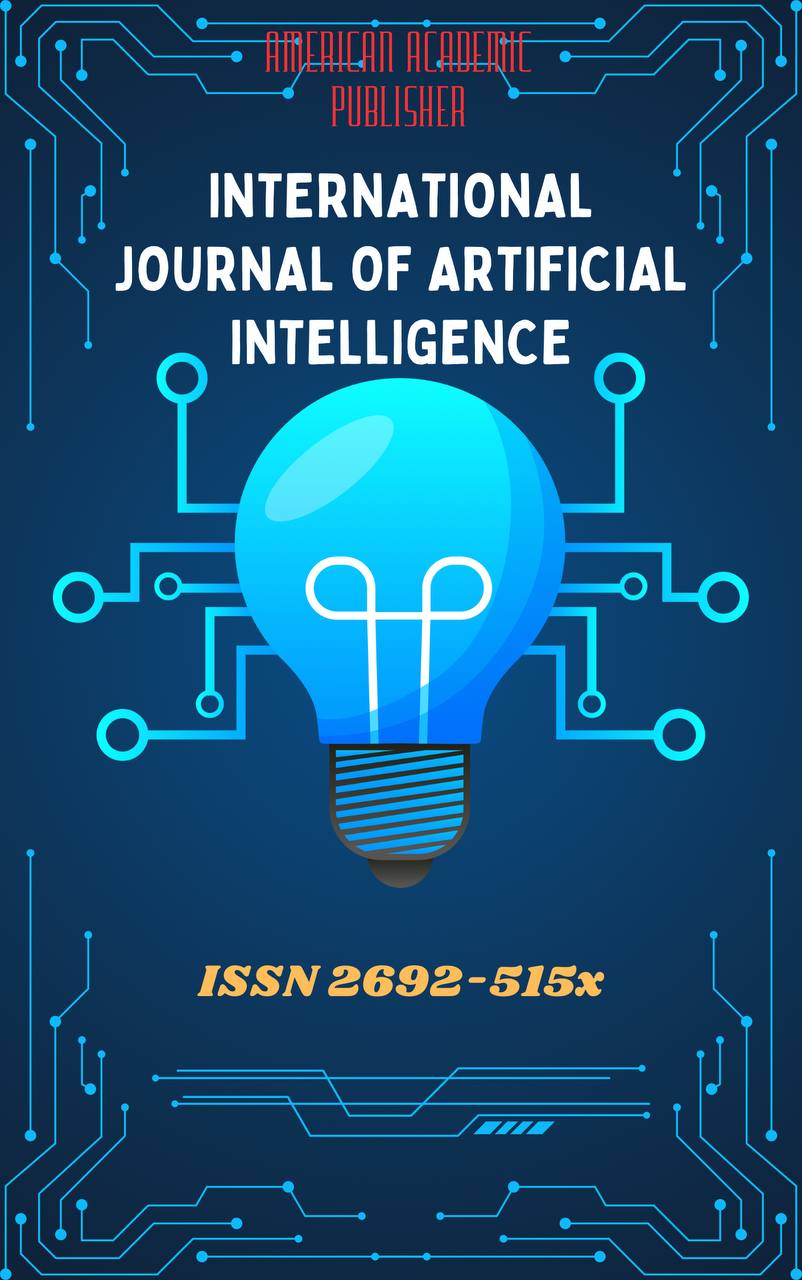 Articles
| Open Access |
Articles
| Open Access | THE APPLICATION OF ARTIFICIAL INTELLIGENCE IN FOREIGN LANGUAGE EDUCATION
Maxkamova Komila Toktamuratovna , English teacher at the "International school of finance technology and science" instituteAbstract
Today, the rapid development of digital technologies is creating enormous opportunities in the education system. In particular, artificial intelligence (AI) tools allow for personalization of the educational process, rapid analysis, and adaptation to the needs of students. This article explores the transformative role of artificial intelligence (AI) in foreign language education. It examines various AI-driven tools and technologies that enhance language learning and teaching, focusing on their potential to improve learner engagement, personalize instruction, and facilitate assessment. The discussion includes practical applications, challenges, and future directions for integrating AI in language education.
Keywords
Artificial Intelligence, Foreign Language Education, Siri and Alexa, Duolingo, Chatbot, ChatGPT, Language Learning, Personalized Instruction, Educational Technology
References
Graham Stanley, Language Learning with Technology: Ideas for Integrating Technology in the Classroom, 2013
Shirinoy Yusupova ADVANTAGES OF ARTIFICIAL INTELLIGENCE IN TEACHING ENGLISH // Academic research in educational sciences. 2023. №CSPU Conference 1.
Healey, Justin. Artificial Intelligence (Volume 450). Thirroul: The Spinney Press, 2020.
Zaripov K.Ya ROLE OF ARTIFICIAL INTELLIGENCE IN TEACHING ENGLISH // EJTI. 2024. №5.
Taylakova Guli Bekmuratovna ARTIFICIAL INTELLIGENCE IN EDUCATION // EJAR. 2024. №7S.
Arnurkyzy Aruzhan, Saduakas Akbota ARTIFICIAL INTELLIGENCE IN EDUCATION SYSTEM // International scientific review. 2024. №XCIV.
ChatGPT and a New Academic Reality: Al-Written Research Papers and the Ethics of the Large Language Models in Scholarly Publishing / B. Lund, T. Wang, N. R. Manuru et al. // Journal of the Association for Information Science and Technology. 2023. Vol. 74. Iss. 5. Pp. 570-581
Taecharungroj V. What can ChatGPT do? Analyzing early reactions to the innovative Al chatbot on Twitter // Big Data and Cognitive Computing. 2023. Vol. 7. Iss. 1. Art. 35. DOI: 10.3390/bdcc7010035
ChatGPT Generative Pre-trained Transformer, Zhavoronkov A. Rapamycin in the context of Pascal's Wager: Generative pre-trained transformer perspective //Oncoscience. 2022. Vol. 9. Pp. 82-84. DOI: 10.18632/oncoscience.571.
Healey, Justin. Artificial Intelligence (Volume 450). Thirroul: The Spinney Press, 2020.
Taylakova Guli Bekmuratovna ARTIFICIAL INTELLIGENCE IN EDUCATION // EJAR. 2024. №7S.
Arnurkyzy Aruzhan, Saduakas Akbota ARTIFICIAL INTELLIGENCE IN EDUCATION SYSTEM // International scientific review. 2024. №XCIV.
Article Statistics
Downloads
Copyright License

This work is licensed under a Creative Commons Attribution 4.0 International License.

